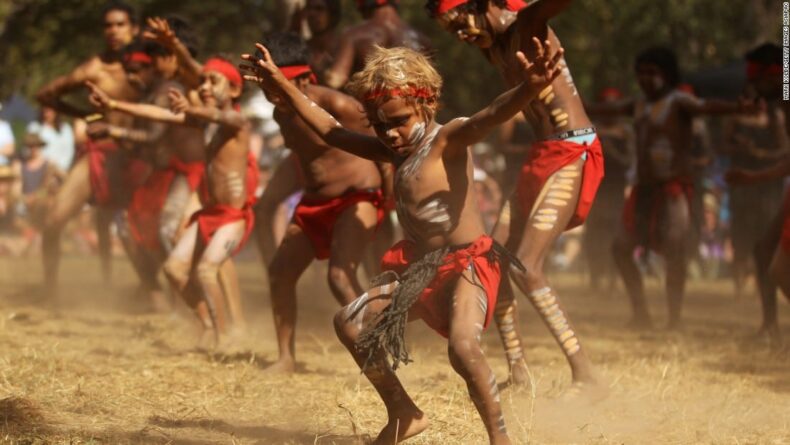Australian Prime Minister Anthony Albanese announced a nationwide indigenous referendum on Friday. The referendum raises the important question of granting constitutional recognition to the Aboriginal and Torres Strait Islanders. The PM looked tearful as he asked the nation, ‘if not now, when?’.
PM Albanese was joined by various indigenous community leaders at the event. At the press conference, he commended the forbearance and resolve of the First Nations People. He went on to explain that it was due to their willingness to cooperate and engage in discussions with the government, that they were collectively able to arrive at this juncture.
The pivotal question put to a public vote is, whether constitutional recognition ought to be provided to the First Nations people. Any amendments to the Australian Constitution require holding a national referendum. The government is likely to conduct this one from October to December.

Albanese asked the voting public to amend the national constitution and form a Parliamentary consultative committee. The committee, if created, is to be referred to as the ‘’Aboriginal and Torres Strait Islander Voice’.
The committee would have an advisory role. It would be tasked with giving non-binding recommendations to legislators on issues relating to the Indigenous community. The bill has passed the Senate, owing to bipartisan support. It is scheduled to be placed before the Parliament in the upcoming week.
The Plight of Australian First Nations People
The indigenous community has lived on the Australian continent for the past 60,000 years. However, the national constitution that took effect in 1901, is silent on them. The national referendum attempts to expand the recognition provided to these people.

The British colonial government that ruled Australia in the past, subjugated and side lined the community. They utilized the concept of ‘terra nullius’ (nobody’s land) to erase the indigenous inhabitant’s claim to land ownership. They also discriminated against and perpetuated crimes against the population, including massacres.
The First Nations people continue to face discrimination and marginalization in the post-colonial Australian state. They were not granted the right to vote until the late 1960s. Today, they constitute 3.2% of the population of the Australian nation. Yet, they continue to experience poor socio-economic conditions. They also face increased suicide risk and imprisonment rates.
The national referendum is going to be the first one in 24 years. In Australian history, out of 44 proposals for constitutional amendments in 19 referendums, only 8 were accepted by the public. The latest public poll indicates a 5% decline in support for the referendum. However, the majority of the population (59%), seems to be in favor of granting constitutional recognition.
Political Opposition to the Referendum
Many critics have pointed out their opposition to the phrasing of the referendum question. The PM has given assurance that he would phrase it in the most precise manner possible.
The Liberal Party (primary opposition party) has not stated whether they would affirm the referendum question. The party leader, Peter Dutton claims that Albanese’s government has not answered his question on the functioning of the consultative panel. He requires more clarity before confirming the Liberal Party’s position on the matter.
The Green party expressed its support, while the National Party expressed its opposition. Others, such as Independent senator Linda Thorpe called for a treaty between the government and Indigenous people, like what exists in nations such as Canada and New Zealand.
Opposition parties want the government to provide funds to campaigns, for and against the proposal. The government has not responded with any guarantees. However, it has stated that pamphlets containing arguments on both sides will be provided to the voting public.












